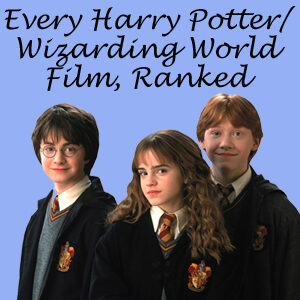Disney has been doing a great job of sucking the fun out of “Star Wars” since it purchased Lucasfilm in October 2012. First, it canceled “The Clone Wars,” leaving many storylines dangling. Now, to judge from an April 25 announcement that has sent shock waves across fandom, it is more or less canceling the Expanded Universe as we’ve known it for the past 37 years. A nail in the coffin was pounded on April 29 when the announcement of the “Episode VII” cast included Peter Mayhew, whose character of Chewbacca would be dead in that movie if the Expanded Universe was being taken into account (Chewie died in the 1999 novel “Vector Prime,” set 25 years after “A New Hope”).
In some ways, the Lucasfilm Story Group’s approach to “Star Wars” continuity will be business as usual. “Clone Wars” and “Rebels” executive producer Dave Filoni notes in the video accompanying the press release that he (and the whole Story Group) loves the Expanded Universe and they will draw from it in “Rebels” – and indeed are already doing so with the main villain, the Inquisitor. So I could write another blog post in the vein of this one and argue that “Rebels” and “Episode VII” will respect the EU at least as much as prequels and “The Clone Wars” did. That is to say, it won’t respect it if George Lucas wants to change something (Mandalore, Boba Fett, Even Piell, Dengar, Bossk, Greedo, Anakin gaining Knighthood, etc.), or if Lucas’ hand-picked successors like Filoni and “Episode VII” director J.J. Abrams want to change something (resurrecting Chewbacca). But it would respect it in a broader sense.
But if I did that, I wouldn’t believe my own argument. In that 2012 blog post, one of the things I cited as a positive sign for EU fans was that Disney’s Bob Iger talked about the hundreds of “Star Wars” novels and comics in the announcement of the purchase. And, indeed, the rhetoric about the EU was similarly positive in last month’s Lucasfilm Story Group announcement. But those are just words. While those holding the storytelling reins at Disney may say they love the nearly four decades of intricate lore spanning 25,000 years in the Galaxy Far Away, the very fact of this announcement proves otherwise.
If they loved the EU as much as fans do, they wouldn’t reprint the old books (and presumably comics, although those weren’t mentioned outright) under the “Legends” banner to distinguish them from the new Disney-produced stuff that will all be officially canon. While there have always been little contradictions (many of which were patched over with ret-cons from future storytellers or the keepers of the holocron at Lucasfilm), this announcement makes it painfully official that there are two distinct timelines now: Legends-canon and Disney-canon. What the Lucasfilm Story Group loves more than the EU is a fresh start – essentially a reboot (albeit more confusing in the case of “Star Wars,” because there will be so much crossover between L-canon and D-canon, since both have the movies as launching points). And reboots have been the bane of pop storytelling for the past decade.

Disney and the Lucasfilm Story Group have the power, but – although they may believe otherwise — they are in the minority in the debate over whether Disney’s big-name projects (“Rebels,” but even more so, the sequel trilogy of movies) should respect the Expanded Universe. Immediately after the 2012 sale to Disney, “Star Wars” fans lamented the end of the EU. Many grudgingly accepted the end of the EU as fact and went through a grieving process of sorts (such as Jesse and Wayne over at Temple Archives, formerly the Star Wars Book Report), but ultimately decided it was a price worth paying in order to get more “Star Wars” movies.
Some “Star Wars” fans decided to put up a valiant fight, including the Facebook page “I Want new Star Wars movies to be consistent with Expanded Universe” (which is still valiantly fighting). What you didn’t hear from any corner of fandom was “Thank god the EU is over, and we can now get a fresh start with new stuff.” This is because “Star Wars” fans and EU fans are one and the same: Ninety percent of “Star Wars” is the EU, so someone who is only interested in 10 percent of “Star Wars” is by definition a casual fan.
The Lucasfilm Story Group perhaps made its decision for the same reason Hollywood keeps rebooting action heroes: Fear of Joe Schmo’s short attention span. Franchises like “Batman” and “Spider-man” like to say “Check out our new movie; you don’t need to know anything about the previous movies or comics or anything else to enjoy it, because this is a reboot.” Certainly, reboots follow in the oldest storytelling traditions: Campfire stories that get changed a bit with each retelling. But “old-fashioned” can also mean “stagnant” and “safe.” Old-fashioned ideas about relative values of different media – along with a focus on how much of a hand Lucas had in the storytelling — is the main reason why movies are broadly seen as the most legitimate expression of “Star Wars,” with TV in second place thanks to “The Clone Wars” and books and comics and games bringing up the rear since Lucas had less to do with those products and the mainstream media always paid them much less attention.
But the majority of “Star Wars” fans don’t see “Star Wars” the way it’s seen by a theoretical casual fan or a mainstream pop-culture critic. To us, what was cool about “Star Wars” and its Expanded Universe was that it did something no other franchise has ever achieved, at least not to this degree: Every new story expanded the rich tapestry and allowed us to vicariously live in this vast, increasingly detailed other world. Even “Star Trek,” whose TV series and films were all part of one timeline for many years (although, I suspect, not as intricately interwoven as “Star Wars”), went the reboot route in 2009.
It’s not quite like religion – I factually know that “Star Wars” is not real – but it gives a lot of the same satisfaction that religious people feel digging into scripture in search of answers. On some level (the level of the imagined world that has existed in my head since my dad took me to see “Return of the Jedi” in 1985), I feel like the “Star Wars” universe is real. And, as all of us who have consumed the books and comics know, the medium is irrelevant to the quality; a medium is just a conduit for telling stories. As such, no one is automatically a more worthy storyteller than anyone else. Filoni (TV) doesn’t automatically trump Tom Veitch (comics). Lawrence Kasdan (movies) doesn’t automatically trump Michael Stackpole (novels). It’s all “Star Wars,” and it’s all good (even when it’s bad). I look forward to new “Star Wars” stories with equal passion. Honestly, right now – with a firm hope than EU contradictions will be minimal — I am much more interested in James Luceno’s upcoming novel “Tarkin” than in “Episode VII,” which I fear could be an outright continuity bloodbath for the post-“Return of the Jedi” characters as I’ve known them for decades.
What’s frustrating about the announcement of the L-canon and D-canon split is that the Die-Hard Fans vs. Casual Fans debate is artificial. Excising the EU was not at all necessary to achieve future stories that could be enjoyed by both groups. Plain ol’ good screenwriting – perhaps with a consultant such as Lucasfilm’s Pablo Hidalgo (author of “The Essential Reader’s Companion”) nearby and a detailed opening scroll to catch John Q. Public up on the intervening three decades — was all that was needed. And what’s more, if the movie turned those casual fans into serious fans, there would already be tons of further adventures on the bookshelves for them to peruse. Now there will be fewer canonical books for them to discover, plus a bevy of confusion over the “Legends” books. While L-canon and D-canon are ostensibly labels to help these (as-of-now theoretical) new Disney-era “Star Wars” fans, in truth they will only be confused. Only die-hard “Star Wars” fans will understand those labels, and frankly, a lot of us are still trying to grasp it.
And there’s one big elephant in the room that the Lucasfilm Story Group and even most fans are staying away from: If Disney can make an announcement in 2014 saying that it is rebooting the “Star Wars” timeline, what’s to stop them – or the next group of storytellers entrusted with the reins — from doing it in the future? Yes, there’s buzz about “Episode VII” being the next big thing, but remember, at one time “Heir to the Empire” and “Vector Prime” were the next big things. Am I setting aside old stories that used to be “official” in exchange for new stories that are now “official,” only to repeat the process at a later date? That is the crux of why the Story Group’s categorizing of the novels and “Episode VII’s” Chewbacca casting are so irksome. “Star Wars” used to be “Star Wars,” a genre unto itself, a vast web of intricate storytelling for the multi-media-savvy 21st century consumer of modern myth – inviting and inclusive, yet rich and breathtakingly vast. Yes, there were contradictions (mostly caused by Lucas himself), but mostly it held together due to every new storyteller respecting existing story and character points.
Now, thanks to Disney’s announcement that those were the old stories and these are the new stories, we’re back to stories being told around a campfire (only with modern media). It’s not going to kill my love of “Star Wars” (and it’s not going to kill my “Star Wars” Flashback re-reading project on this blog), but I sure do resent that it puts damper on it.

